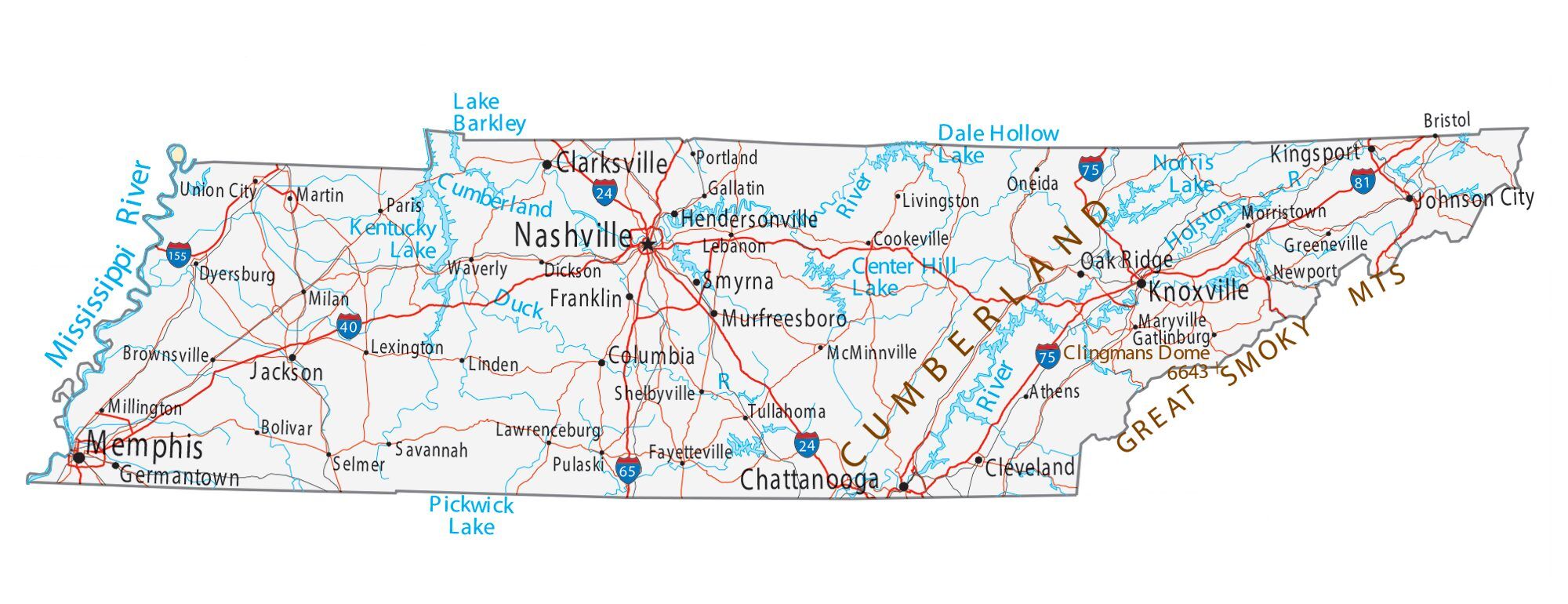Septic systems play a crucial role in managing wastewater for homes and businesses not connected to municipal sewer systems. Adhering to Tennessee Septic Tank Laws ensures the safety of residents, protects the environment, and maintains compliance with state regulations. This guide covers everything you need to know about septic system requirements, costs, and resources in Tennessee.
Table of Contents
- State-Specific Regulations Information
- Compliance Information
- Cost Information
- Local Resources & Contact Information
- Supportive Resources
State-Specific Regulations Information
Installation Permits
Before installing a septic system in Tennessee, obtaining a permit is mandatory. Homeowners or contractors must apply through their local health department. The permit application includes an evaluation of the property’s soil and site suitability.
- Requirements: Soil tests, site inspections, and detailed plans of the proposed system.
- Costs: Tennessee septic permits typically range from $250 to $500, depending on the county and system size.
- Process: After submitting the application, the local health department reviews the site for soil suitability and drainage capabilities. Once approved, the permit allows for system installation under state guidelines.
Septic Tank Size and Placement
Tennessee’s septic tank regulations specify minimum tank sizes based on the number of bedrooms in a home. For instance:
- A two-bedroom home requires a 750-gallon tank.
- A three-bedroom home requires a 1,000-gallon tank.
Drain field placement must comply with setback requirements, including:
- At least 10 feet from property lines.
- At least 50 feet from water sources, such as wells or streams.
In addition to these rules, the slope of the property and soil absorption rates play a critical role in determining the location of the drain field. Proper placement prevents contamination of water sources and ensures efficient wastewater treatment.
Wastewater Disposal
The Tennessee wastewater code mandates proper treatment and disposal of wastewater to prevent contamination. Key points include:
- Prohibiting untreated wastewater discharge into the environment.
- Requiring systems to meet specific performance standards for soil absorption and filtration.
- Encouraging the use of advanced treatment systems in areas with challenging soil conditions.
Homeowners must ensure their septic systems are properly installed and maintained to avoid environmental hazards, such as groundwater contamination. These rules are part of broader efforts under Tennessee wastewater management laws to safeguard natural resources.
Maintenance and Pumping
Regular maintenance is critical for septic system efficiency and longevity. The Tennessee health department guidelines recommend:
- Pumping the tank every 3-5 years, depending on usage.
- Annual inspections to identify potential issues early.
Routine pumping helps prevent system failures and costly repairs. Homeowners are encouraged to keep detailed records of maintenance activities to demonstrate compliance with state requirements.
Compliance Information
Legal Compliance Guidelines
To avoid penalties, homeowners must follow all septic tank regulations in TN, including obtaining necessary permits and maintaining their systems. Non-compliance can lead to serious environmental and legal consequences.
Compliance includes:
- Ensuring systems are installed by certified professionals.
- Adhering to local health department guidelines for inspections and maintenance.
- Avoiding illegal modifications or unpermitted expansions of existing systems.
Potential Fines/Penalties
Failure to comply with Tennessee’s septic laws can result in fines ranging from $500 to $5,000. Repeat offenses or severe violations, such as contaminating water sources, may lead to additional legal actions. In some cases, homeowners may be required to replace non-compliant systems at their own expense.
Environmental Protections
Tennessee’s environmental regulations emphasize protecting groundwater and natural ecosystems. For example:
- Strict rules govern septic system placement near environmentally sensitive areas.
- Systems must meet performance standards to prevent harmful effluent discharge.
- Special considerations are required for properties near wetlands or flood-prone zones.
These measures reflect the state’s commitment to preserving its natural resources while accommodating residential and commercial development.
Cost Information
Understanding the costs associated with septic system installation and maintenance helps homeowners budget effectively. Typical expenses in Tennessee include:
- Permit Fees: $250 to $500, depending on the county.
- Pumping Costs: $200 to $400 per service, based on tank size and location.
- Installation Costs: Installing a new septic system in Tennessee ranges from $3,000 to $10,000. Factors affecting costs include soil conditions, system type, and property size.
- Repair Costs: Repairs for damaged or failing systems can range from $500 for minor fixes to $5,000 or more for major overhauls.
Homeowners should also account for potential additional costs, such as advanced treatment systems or engineered solutions for challenging sites. Investing in proper maintenance reduces the likelihood of costly repairs or replacements.
Local Resources & Contact Information
State Agencies and Environmental Departments
For guidance and support, homeowners can contact the following:
- Tennessee Department of Environment and Conservation (TDEC): Oversees septic system regulations and environmental protections.
- Website: TDEC Official Site
- Contact: 1-888-891-8332
Local Health Departments
Each county health department provides services such as soil testing, permit applications, and inspections. Visit your county’s health department website for details or call for assistance.
Certified Septic Service Providers
Engaging a state-certified septic service company ensures compliance with Tennessee laws. Local directories and the TDEC website offer lists of approved providers. Some reputable providers include:
- ABC Septic Services: Serving middle Tennessee with installation and maintenance.
- CleanFlow Septic Solutions: Specializing in advanced treatment systems.
Supportive Resources
To assist homeowners further, several resources are available:
- Tennessee Wastewater Management Laws: Detailed guidelines on septic system regulations and environmental protections.
- Tennessee Health Department Guidelines: Downloadable handbooks and maintenance tips.
- Infographics and Educational Material: Many counties provide visual guides to help residents understand septic system requirements and care.
Additional resources include:
- EPA’s SepticSmart Program: Offers tips for proper septic system care.
- Local Workshops: Many health departments host workshops to educate residents on septic system maintenance and compliance.
Conclusion
Adhering to Tennessee Septic Tank Laws is essential for protecting public health and the environment. By understanding the regulations, maintaining your system, and consulting local resources, you can ensure compliance and avoid costly penalties. Regular maintenance not only extends the life of your septic system but also safeguards Tennessee’s natural resources for future generations. Reach out to certified professionals and state agencies for additional support and guidance on Tennessee Septic Tank Laws.
Septic Regulations in Rural Areas: Essential Guide for Rural Property Owners
The Role of Perforated Pipes in Drain Fields
What Happens During a Pumping Service?
Septic Tanks vs. Sewer Systems | Choosing the Right Option
Directory | Virginia Septic Service Providers | Part 2
Directory | Virginia Septic Service Providers : Best Professionals | Part 1







